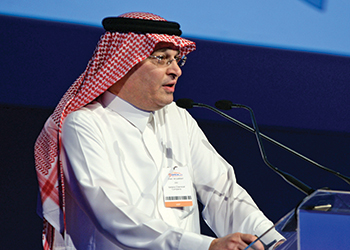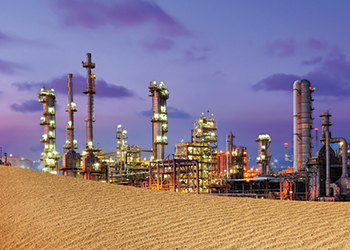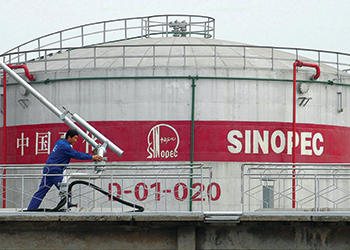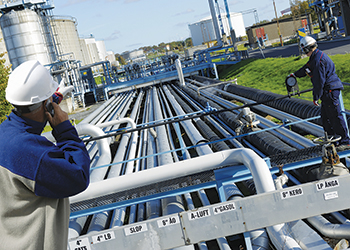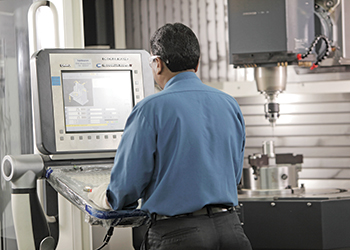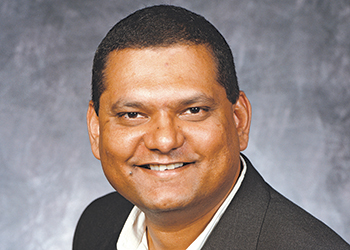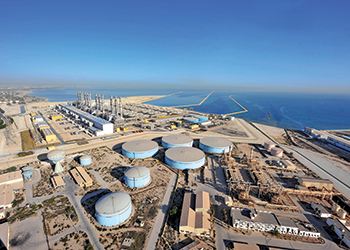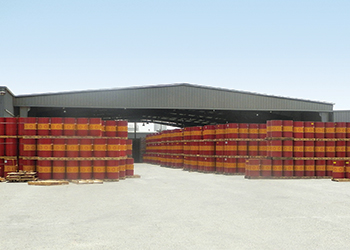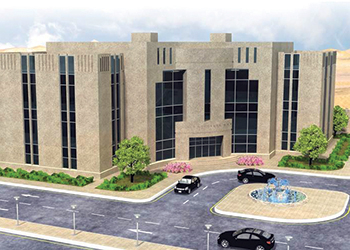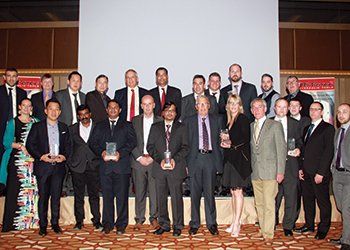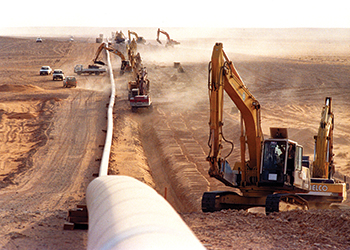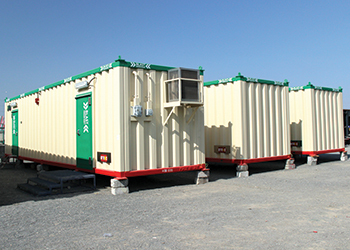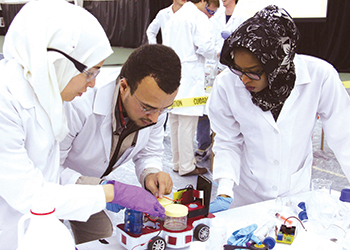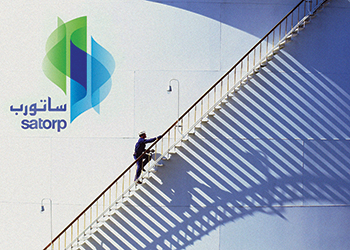
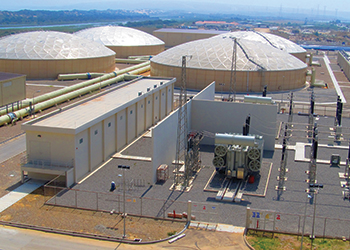 Hyflux ... winning contracts in Saudi Arabia
Hyflux ... winning contracts in Saudi Arabia
The company will build 10 modular units, which will incorporate its Kristal ultrafiltration membrane technology for seawater reverse osmosis desalination
Singapore-based Hyflux Group, one of the world’s leading technology-driven environmental companies focusing on water and power solutions, has secured a contract from the state-owned Saline Water Conversion Corporation (SWCC) of Saudi Arabia to design, build and supply a containerised desalination system with a total designed capacity of 30,000 cubic metres per day (cu m d). The contract is worth approximately $48 million and was awarded to its wholly-owned subsidiary Hydrochem Saudi Limited.
The system will be located on the site of the existing Yanbu Desalination Plant on the Red Sea coast, 350 km north of Jeddah. The project is expected to be completed in approximately eight months. It will be one of the largest of its kind and augment the desalination plant’s capacity to ensure a continuous and reliable water supply to the industrial city of Yanbu and the nearby Medina region.
Under the contract, Hyflux will build 10 modular containerised units, which will incorporate its proprietary Kristal ultrafiltration membrane technology for the pretreatment phase of the seawater reverse osmosis desalination process. Each unit will have the capacity to desalinate 3,000 cu m d. Hyflux’s Kristal polymeric hollow fibre ultrafiltration membranes are state-of-the-art in reverse osmosis and has been employed in over 1,300 installations worldwide in more than 400 locations in Asia, Europe, the Middle East, Africa and America.
Hyflux’s modular containerised desalination solution provides high quality water while minimising the impact on the environment. The system is compact and flexible, which makes it easy to deploy, install and commission.
"We are honoured to be given this opportunity to work with SWCC. This project is a great example of Hyflux’s ability to provide quick, cost-effective solutions for our customers," says a company spokesperson.
SWCC, which owns more than 30 desal plants in Saudi Arabia, has plans to build at least 20 more desal plants by 2030. The increasing commercial viability of desal will help both Saudi Arabia and Singapore, as they increase the proportion of their potable and industrial-use water derived from that process. Thanks to scientific advances such as membrane technology, it costs about half as much to produce fresh water through desal as it did 15 years ago, when it cost $5 per cubic metre to produce.
"Today you can probably get in the range of $1-$2 (per cu m) depending on the oil price," she says.
"Increasing water scarcity is spreading the use of large-scale desal to new markets", she says. "Hyflux is in a strong position to provide clean, affordable and sustainable water solutions to meet worldwide demand."
Meanwhile, construction work on the $250-million independent water project in Qurayat, Oman will start shortly and the project, which will add 200,000 cu m of desalinated water to Oman’s drinking water supply, is expected to be completed by May 2017, according to the company’s annual report. Hyflux’s subsidiary will be the EPC contractor for the project.
Hyflux, a fully-integrated water and power solutions company, signed the water purchase agreement in March 2015. The project will deliver water to Oman Power and Water Procurement Company SAOC (OPWP) for a period of 20 years, she says.
Meeting the water needs of the Middle East
Hyflux has been active in the Middle East since 2004. Its first project in Oman was a contract it won in 2009 for a 68,000 cu m per day seawater reverse osmosis desal facility for the Salalah Independent Water and Power Project.
There is a huge demand for water in the Middle East. With population growth, urbanisation and industrialisation, the quality and quantity of the groundwater resources are being strained.
Many countries in the region also face water stress with less than 1,000 cu m per year of renewable water resources per capita. There is an urgent need for further investment in water infrastructure such as desal and water reuse so that reliable and sustainable supplies of water can be secured for the future.
"With Hyflux’s technical expertise and ability to deliver cost effective projects globally, we can deliver desal and water reuse solutions to these countries," she says.
Currently, Hyflux is exploring selective markets in the Middle East such as Saudi Arabia, UAE, Oman, Kuwait and Qatar. These are traditional thermal desal markets which are embracing reverse osmosis membranes for large-scale desal plants, and have comprehensive policies to invest in water infrastructure.
With population growth comes the need for wastewater treatment, especially with more stringent environmental discharge regulations. Hyflux is also exploring opportunities to provide its membrane-based water reuse solutions to countries in the Middle East.
"Water reuse is a good, cost-effective alternative to seawater desal for water-stressed communities which do not have access to the sea. We are a pioneer in water reuse, having built two of Singapore’s NEWater plants," she says.
NEWater is a term coined by PUB, Singapore’s national water agency, for high-grade reclaimed water that has been produced from treated used water that is further purified using advanced membrane technologies and ultraviolet disinfection, making it ultra-clean and safe to drink.
Global Water Industry
The spokesperson says 2014 was a year of strategic progress for Hyflux amid the climate of global economic and political uncertainties.
"We successfully completed the construction of the 411 MW combined cycle gas turbine power plant co-located with Tuaspring Desalination Plant in Singapore. This development marked our expansion into a new business that will complement and enhance our competitiveness in our core water business."
The coupling of a desalination plant with a power plant ensures a secure source of energy for the production of water. Meanwhile, heat from the power generation process warms the water which is fed into the desalination plant to allow lower osmotic pressure during the reverse osmosis phase. This results in lower energy consumption and cost savings.
The global water industry started to show signs of recovery after a long bout of weakness in the wake of the global financial crisis and political upheavals in the Middle East and North Africa region. But the momentum of municipal project tenders did not start to pick up until the second half of 2014.
"We strengthened our balance sheet during the year. As part of our asset light strategy, we sold and leased back Hyflux Innovation Centre as well as divested our interests in Hyflux Marmon Development Pte Ltd and Marmon Hyflux Investments Pte Ltd. We also successfully raised S$475.0 million through two perpetual capital securities issues in January and July 2014. The proceeds will enable us to finance infrastructure and water projects, acquire new technology, invest in R&D, and expand our membrane manufacturing automation and capacity," she says.
The company’s total order book currently stands at more than S$2.9 billion with operations and maintenance (O&M) contributing S$2.0 billion.
Meanwhile, the Magtaa Desalination Plant was officially opened by Algeria’s Prime Minister, Abdelmalek Sellal, in November 2014.
Magtaa Desalination Plant has a designed capacity of 500,000 cu m per day and is the largest seawater reverse osmosis desal plant on the African continent. It will provide a sustainable and reliable supply of water to Oran, Algeria’s second largest city, and the neighbouring provinces under a 25-year water purchase agreement with L’ Algérienne Des Eaux and Sonatrach. The plant will also contribute to Hyflux’s recurring income base over the next 25 years.
By 2016, the company expects to see substantially stronger recurring income from its current portfolio of water projects, asset returns, membrane sales and other services.
"We are cautiously optimistic about the recovery of the water industry in 2015 amidst a weaker oil price environment. There are signs pointing to a rebound in the global market for large-scale water infrastructure projects, and we have been actively bidding for projects in selective markets in the Middle East, Africa, Asia and the Americas," she says.
Hyflux expects increased operational activities in its key projects in the second half of 2015. This will be supported by the ramp up in operation of Magtaa Desalination Plant, commissioning of Tuaspring Power Plant in Singapore and the full-scale development of Qurayyat IWP. The company will also be exploring some asset divestment opportunities during the year.
"The journey may be challenging, but we believe challenges will also bring opportunities to those who are nimble and flexible. Our focus on areas where we can add value, prudence and discipline in our investments as well as efficient cost structure, will put us in good stead in the competitive global landscape," she adds.



































































